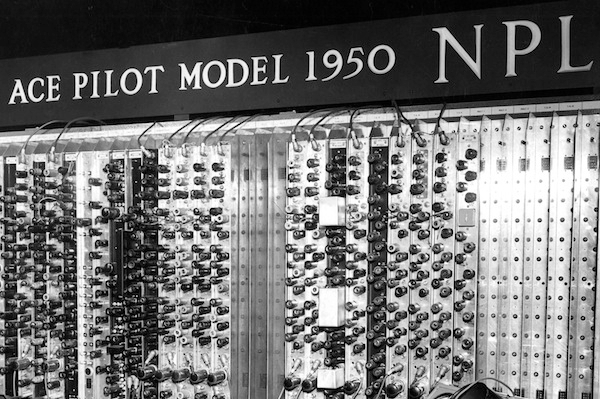Alan Turing was one of the reasons why Britain won the Second World War. His mathematical and computing skills were vital to cracking the Enigma code. Yet, Turing committed suicide less than 10 years after the end of the war. A conviction for gross indecency for private, consensual gay sex followed by a sentence of chemical castration had taken its toll.
Today, the House of Lords debates Lord Sharkey’s bill to grant Turing a statutory pardon. In The Times yesterday, Matthew Ridley argued that rather than a pardon, which would imply that Turing’s actions were criminal, the government should put him on a plinth in Trafalgar Square. But I think the case for a posthumous pardon is strong, as it would be a symbol of national atonement and an act of contrition to the memory of a war hero.
But, this government is refusing to grant him a posthumous pardon. Earlier this month, the Criminal Justice Minister Damian Green wrote to colleagues arguing that the government should take a ‘neutral stance’ towards Lord Sharkey’s attempt to win a ‘statutory pardon’ for Turing. He also said that he had ‘concluded that now is not the right time’ to simply grant Turing a pardon on mercy grounds.
This letter infuriated the Business Secretary Vince Cable. He wrote back declaring that the refusal to grant a posthumous pardon to this ‘scientific giant’ was ‘contrary to this Government’s attempts to create a fairer society, free from discrimination.’ The next day, Gove weighed in with his support, saying that he ‘strongly’ agreed with Cable. He said that ‘criminalisation of homosexual behaviour is utterly reprehensible’ and that he therefore believed the ‘time is absolutely right to grant Dr Turing a posthumous pardon.’
As I said in the Mail on Sunday, Cable and Gove are about an unusual alliance as you could imagine. Cable is the voice of the Liberal Democrat left in government and Gove the darling of the Tory radical right. But on this issue Michael agrees with Vince.
Let’s hope that their humanity wins out over the system’s bureaucratic heartlessness. Never should it not be the ‘the right time’ for the government to do right by those who ensured this country’s survival.







Comments